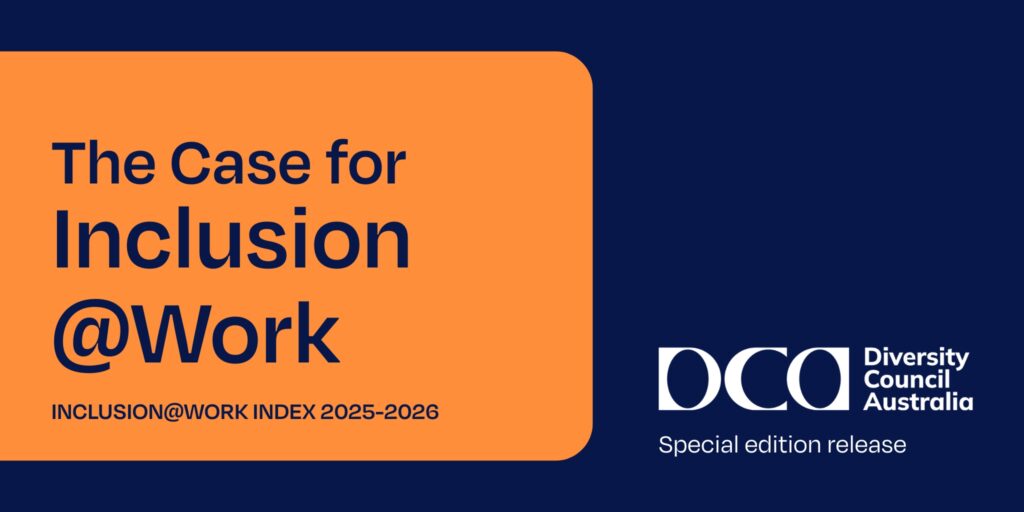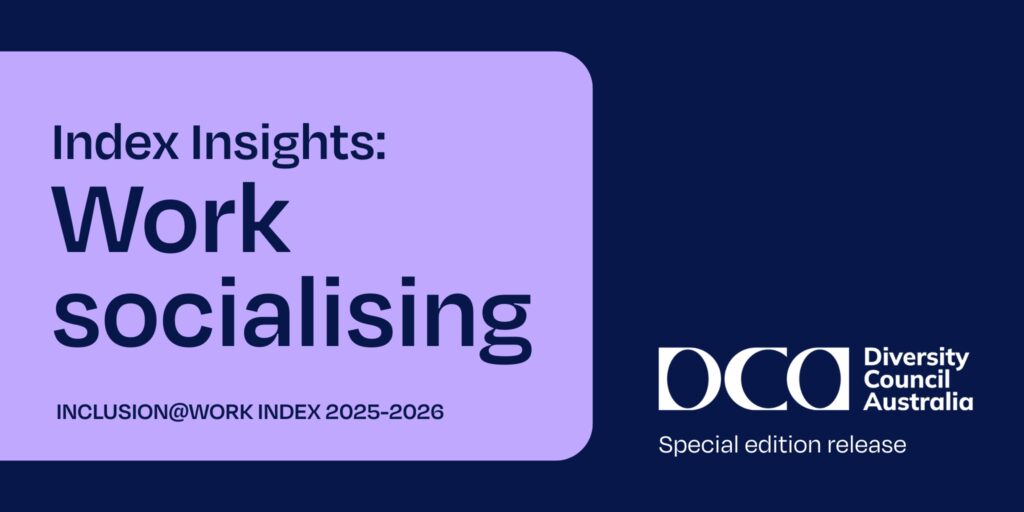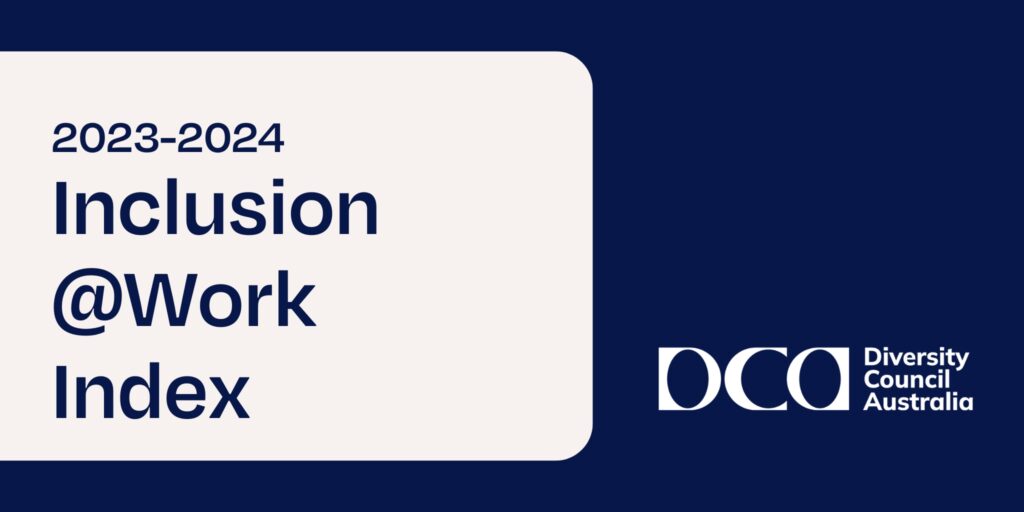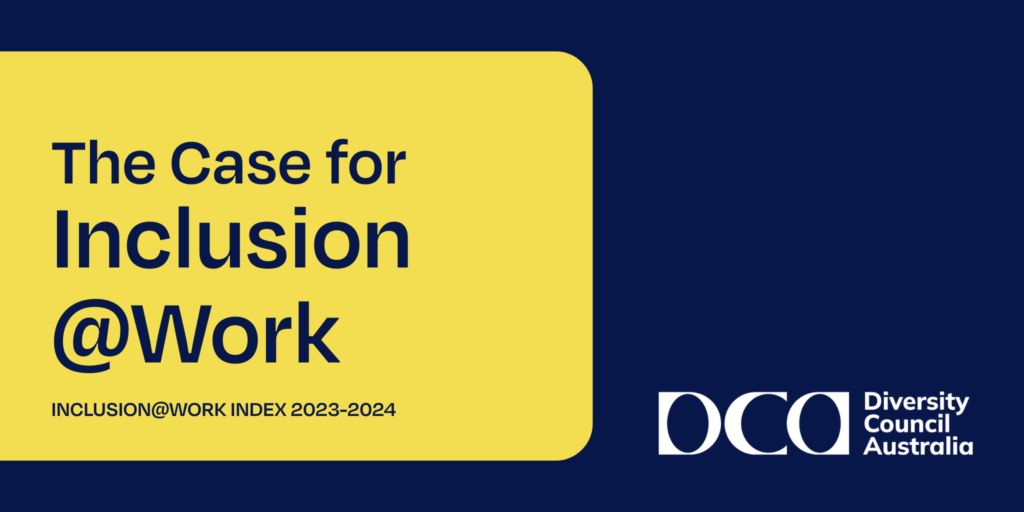What is the Inclusion@Work Index?
DCA’s Inclusion@Work Index is a biennial survey launched in 2017 that maps and tracks inclusion and exclusion in Australian workplaces over time. The Index uses data from a nationally representative sample of workers to measure how different demographic groups experience inclusion and exclusion at work.

Explore the insights
Findings from the Inclusion@Work Index consistently show that inclusion is far more than a “feel good” initiative — it is a key driver of employee wellbeing, performance and organisational success.
Employees in inclusive teams report higher satisfaction, stronger wellbeing and better outcomes than those in non-inclusive environments.
The Index also shows that inclusive managers and inclusive organisations deliver stronger team performance and lower risk, reinforcing that investing in inclusion is essential for building high-performing, resilient workplaces.

Want to explore the state of D&I in your organisation?
DCA’s Inclusive Employer Index allows organisations to gather the same in-depth insights as the Inclusion@Work Index within their own workplaces.
Inclusion@Work is good for people
Workplace inclusion is more than a “feel good” exercise. It creates a better work environment that boosts employee wellbeing, fuels performance and minimises risk.
x 10
Job satisfaction
Workers in inclusive teams are 10 times more likely to be very satisfied than workers in non-inclusive teams.
x 4
Mental Health
Workers in inclusive teams are 4 times more likely to feel work has a positive impact on their mental health.
x 3
Turnover
Workers in inclusive teams are 3 times less likely to leave their organisation than those in non-inclusive teams.
Inclusion@Work is good for business
Our data consistently shows a strong link between inclusion at work and team performance, so if your organisation is looking to create high-performing teams, it’s time to start investing in building Inclusion@Work.
x 9.5
Innovation
Inclusive teams are 9.5 times more likely to be innovative than non-inclusive teams.
x 8.5
Teamwork
Inclusive teams are 8.5 times more likely to work together effectively.
x 2.5
Motivation
Inclusive teams are 2.5 times more likely to have members willing work extra hard to help their team succeed.
INCLUSION@WORK INDEX logo is a Registered Trade Mark of Diversity Council Australia Limited.

New data shows LGBTIQ+ workers face increased discrimination and harassment
New research from DCA shows that nearly half of LGBTIQ+ workers report they experienced discrimination and/or harassment in the past year.

LGBTIQ+ workers still face exclusion at work. Here’s what employers can do
New DCA research shows LGBTIQ+ workers still face high levels of discrimination and harassment. Here’s what employers can do to build LGBTIQ+ inclusion.

Workers with disability nearly twice as likely to face discrimination or harassment, new DCA data shows
To mark International Day of Persons with Disabilities, DCA has released data revealing workers with disability still face disproportionately high levels of exclusion in Australian workplaces.




